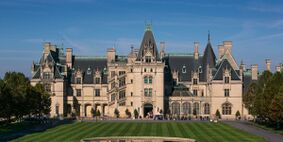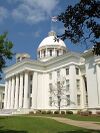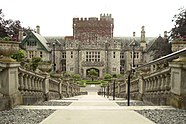Ceres, Ebrary: Difference between revisions
No edit summary |
No edit summary |
||
| Line 91: | Line 91: | ||
'''Ceres''', officially the '''Autonomous City of Ceres''', is the capital and largest city of [[Ebrary]], in addition to its cultural and economic center. The city is an enclave, surrounded in all sides by Laverna Province. The city of Ceres is governed as an autonomous city, equal in status to, and independent of, the [[Ebrary#List of provinces and autonomous cities|provinces of Ebrary]]. | '''Ceres''', officially the '''Autonomous City of Ceres''', is the capital and largest city of [[Ebrary]], in addition to its cultural and economic center. The city is an enclave, surrounded in all sides by Laverna Province. The city of Ceres is governed as an autonomous city, equal in status to, and independent of, the [[Ebrary#List of provinces and autonomous cities|provinces of Ebrary]]. | ||
The Greater Ceres | The Greater Ceres Metropolitan Area, which also includes the city of Urtedo and other municipalities in Laverna province, makes up the most populous metropolitan area in the Ebrary. | ||
Ceres has many officially recognized [[List of Ebrarian National Landmarks|National Landmarks]], including: Castello Providence, Palatio de Estalta, Palatio Presidential, Castello Corporation, Casa National, Cathedral de Ceres, and Church of the Pentecost. | Ceres has many officially recognized [[List of Ebrarian National Landmarks|National Landmarks]], including: Castello Providence, Palatio de Estalta, Palatio Presidential, Castello Corporation, Casa National, Cathedral de Ceres, and Church of the Pentecost. | ||
Revision as of 19:00, 31 January 2022
This article is incomplete because it is pending further input from participants, or it is a work-in-progress by one author. Please comment on this article's talk page to share your input, comments and questions. Note: To contribute to this article, you may need to seek help from the author(s) of this page. |
Autonomous City of Ceres | |
|---|---|
Capital city and autonomous city | |
From top, left to right: Palatio Presidential; Cathedral de Ceres; Palatio de Estalta; Ebrarian Museum; Historic Center (Old Town); Statue of Marcus Ebraius; Castello Providence | |
| Country | Ebrary |
| Founded | 413 |
| Founded by | Marcus Ebraius |
| Government | |
| • Type | Autonomous city |
| • Body | City Council |
| • Mayor | Abrero Baran (PRC) |
| Population | |
| • Total | 2,530,000 |
| • Rank | 1st in Ebrary |
| Demonym | Ceresian |
Ceres, officially the Autonomous City of Ceres, is the capital and largest city of Ebrary, in addition to its cultural and economic center. The city is an enclave, surrounded in all sides by Laverna Province. The city of Ceres is governed as an autonomous city, equal in status to, and independent of, the provinces of Ebrary.
The Greater Ceres Metropolitan Area, which also includes the city of Urtedo and other municipalities in Laverna province, makes up the most populous metropolitan area in the Ebrary.
Ceres has many officially recognized National Landmarks, including: Castello Providence, Palatio de Estalta, Palatio Presidential, Castello Corporation, Casa National, Cathedral de Ceres, and Church of the Pentecost.
Etymology
Curiously for a city founded by early Christians, Ceres was named for the Aroman goddess Ceres. It is believed that when Marcus Ebraius founded the city, he named it Ceres due to its central location in the prolific agricultural region of the Ceres Delta. As well, being a goddess of fertility, the name Ceres symbolized the birth of a new land to be settled by Aroman colonists.
Due to the pagan connotations of the name, a committee was established in 1986 by the government of president Jacobo Castello to possibly rename the city. Top proposals were Ebraropolis and Sancte Maria. However, the effort was eventually abandoned due to the continued popularity of the city's traditional name.






